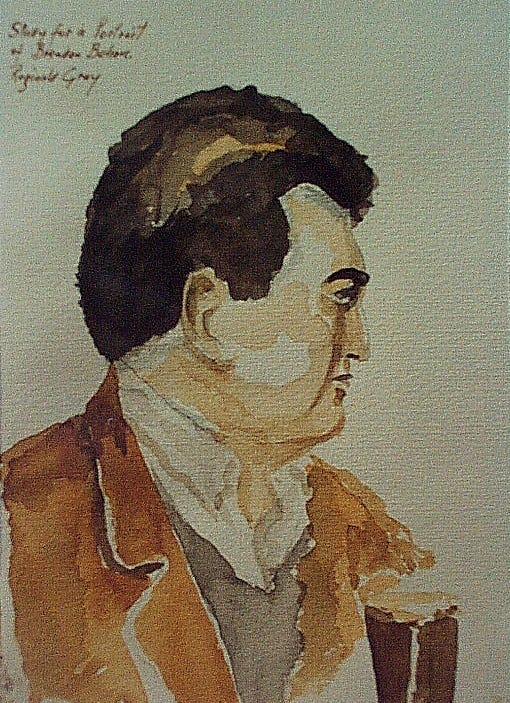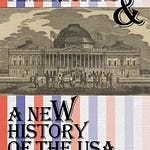Dedicated to all the Black trans/nonbinary siblings incarcerated now as Trump rolls back their protections. Abolish these cages now.
Taken from Wikipedia:
Brendan Francis Aidan Behan[1] (christened Francis Behan)[2] (/ˈbiːən/ BEE-ən; Irish: Breandán Ó Beacháin; 9 February 1923 – 20 March 1964) was an Irish poet, short story writer, novelist, playwright, and Irish Republican,[3] an activist who wrote in both English and Irish. His widely acknowledged alcohol dependence, despite attempts to treat it, impacted his creative capacities and contributed to health and social problems which curtailed his artistic output and finally his life.[4]
An Irish Republican and a volunteer in the Irish Republican Army (IRA), Behan was born in Dublin into a staunchly republican family, becoming a member of the IRA's youth organization Fianna Éireann at the age of fourteen. There was also a strong emphasis on Irish history and culture in his home, which meant he was steeped in literature and patriotic ballads from an early age. At the age of 16, Behan joined the IRA, which led to his serving time in a borstal youth prison in the United Kingdom and imprisonment in Ireland. During this time, he took it upon himself to study and became a fluent speaker of the Irish language. Subsequently released from prison as part of a general amnesty given by the Fianna Fáil government in 1946, Behan moved between homes in Dublin, Kerry and Connemara and also resided in Paris for a time.
In 1954, Behan's first play, The Quare Fellow, was produced in Dublin. It was well received; however, it was the 1956 production at Joan Littlewood's Theatre Workshop in Stratford, London, that gained Behan a wider reputation…
Behan became a member of Fianna Éireann, the boy scout group of the Anti-Treaty IRA. He published his first poems and prose in the organisation's magazine, Fianna: the Voice of Young Ireland. In 1931 he also became the youngest contributor to be published in The Irish Press with his poem Reply of Young Boy to Pro-English verses.
At 16, Behan joined the IRA and embarked on an unauthorised solo mission to England to set off a bomb at Cammell Laird shipyard. He was arrested while in possession of explosives. British prosecutors tried to persuade him to testify against his IRA superiors and offered in return to relocate him under a new name to Canada or another distant part of the British Commonwealth.
Refusing to be turned, the 16-year-old Behan was sentenced to three years in a borstal (Hollesley Bay,[14] once under the care of Cyril Joyce[15]) and did not return to Ireland until 1941. He wrote about the experience in the memoir Borstal Boy.
In 1942, during the wartime state of emergency declared by Irish Taoiseach Éamon de Valera, Behan was arrested by the Garda Síochána following a protest of the execution of IRA man George Plant[16] Later that same year Behan was arrested at another commemoration - which the IRA had planned to take place during a Dublin commemoration ceremony for Theobald Wolfe Tone. When the group of IRA men were confronted by the police one member pointed his revolver at them but did not fire. Behan urged him to "use it use it", when no shot was fired Behan shouted: "Give it to me and I will shoot the bastards". When Behan received the gun he fired two shots at police and escaped the scene but was later arrested (10 April 1942). ”[17] He was put on trial for conspiracy to murder and the attempted murder of two Garda detectives, Behan was found guilty and sentenced to 14 years imprisonment.[18]
He was first incarcerated in Mountjoy Prison in Dublin where he sketched out his play the Quare Fellow, based on a fellow prisoner.[19] In June 1944 Behan was interned both with other IRA men and with Allied and German airmen at the Curragh Camp in County Kildare. He later related his experiences there in his memoir Confessions of an Irish Rebel. Released under a general amnesty for IRA prisoners and internees in 1946, Behan's active IRA career was largely over by the age of 23. Aside from a short prison sentence in 1947 for trying to break an imprisoned IRA man out of prison in Manchester, Behan effectively left the organisation, but remained friends with the IRAs long term Chief of Staff Cathal Goulding…
Behan's fortunes changed in 1954, with the appearance of his play The Quare Fellow. Originally called The Twisting of Another Rope and influenced by his time spent in jail, it chronicles the vicissitudes of prison life leading up to the execution of "The quare fellow", a character who is never seen. The prison dialogue is vivid and laced with satire but reveals to the reader the human detritus that surrounds capital punishment. Produced in the Pike Theatre, in Dublin, the play ran for six months. In May 1956, The Quare Fellow opened in the Theatre Royal Stratford East, in a production by Joan Littlewood's Theatre Workshop. Subsequently, it transferred to the West End. Behan generated immense publicity for The Quare Fellow as a result of a drunken appearance on the Malcolm Muggeridge TV show. The English, relatively unaccustomed to public drunkenness in authors, took him to their hearts. A fellow guest on the show, Irish-American actor Jackie Gleason, reportedly said about the incident: "It wasn't an act of God, but an act of Guinness!" Behan and Gleason went on to forge a friendship. Behan loved the story of how, walking along the street in London shortly after this episode, a Cockney approached him and exclaimed that he understood every word he had said—drunk or not—but had not a clue what "that bugger Muggeridge was on about!" While addled, Brendan would clamber on stage and recite the play's signature song, The Auld Triangle. The transfer of the play to Broadway provided Behan with international recognition. Rumours still abound that Littlewood contributed much of the text of The Quare Fellow and led to the saying, "Dylan Thomas wrote Under Milk Wood, Brendan Behan wrote under Littlewood". Littlewood remained a supporter, visiting him in Dublin in 1960.








